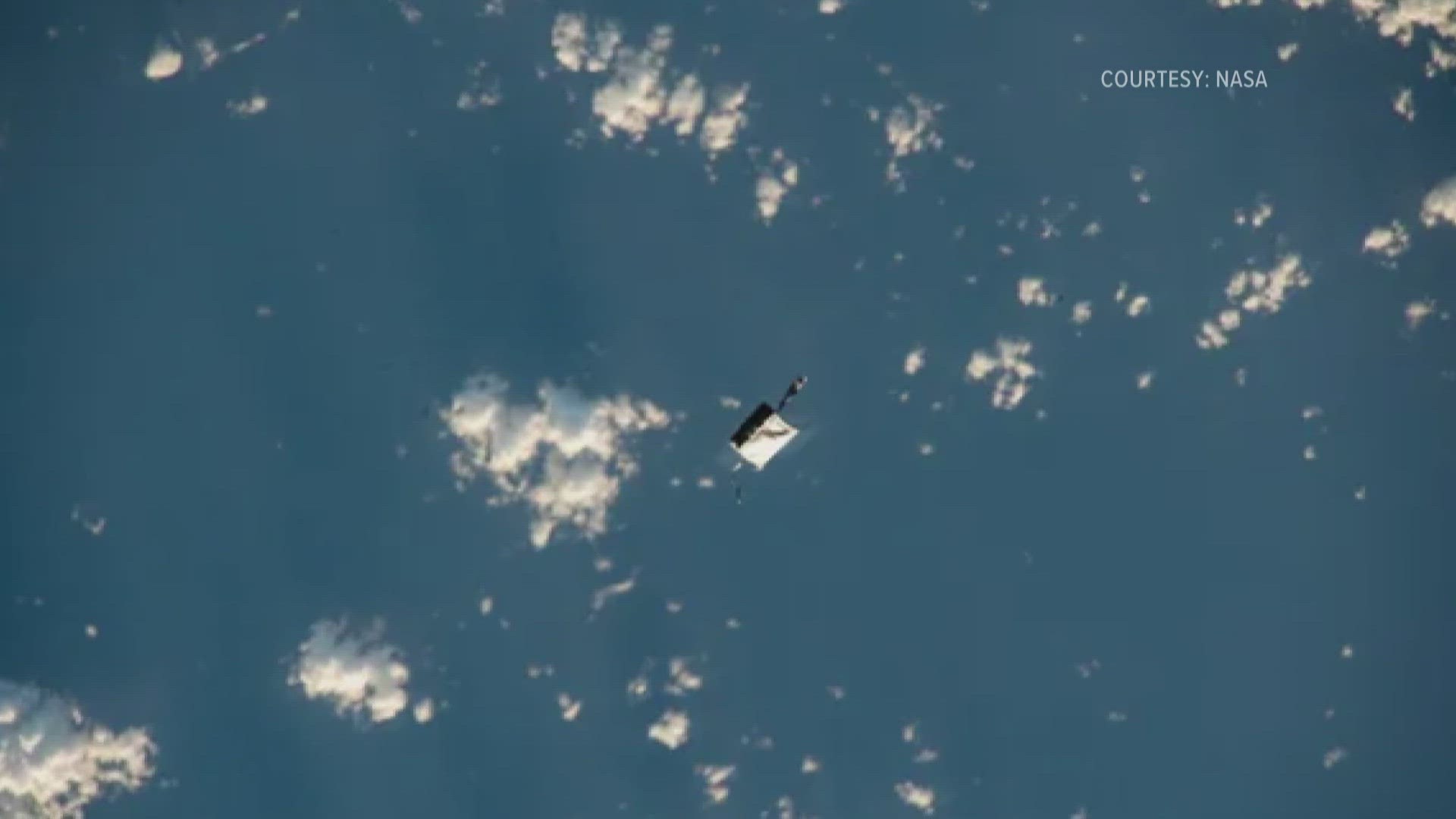NAVAJO COUNTY, Ariz — A planned private spaceflight to the moon this January is facing an objection from the Navajo Nation due to the mission's plans for some of its unusual cargo.
On Monday, Jan. 8, United Launch Alliance's Vulcan Centaur rocket is scheduled to launch from the Kennedy Space Center in Florida, according to Space.com.
Among the cargo on the flight will reportedly be Astrobotic's Peregrine lunar lander and two memorial payloads from companies Celestis and Elysium Space carrying human remains.
According to Space.com, Celestis and Elysium Space plan to deliver a "symbolic portion" of the remains to the moon's surface as one of the services offered by the companies.
One Celestis memorial payload will reportedly travel into deep space on the Vulcan rocket's Centaur upper stage, and another will travel to the moon on the Peregrine lander alongside a payload from Elysium Space.
The remains aboard the mission reportedly include cremated remains or DNA from "Star Trek" icons like Nichelle Nichols, DeForest Kelley, James Doohan and series creator Gene Roddenberry, several former U.S. presidents and others.
Not everyone is pleased with the plans for the mission, however. According to Arizona Public Radio, Navajo Nation President Buu Nygren has asked NASA to delay the launch and consult the Nation, citing that the moon is considered sacred to many Indigenous cultures and placing human remains on it would be "tantamount to desecration".
"It is crucial to emphasize that the moon holds a sacred position in many Indigenous cultures, including ours," Nygren wrote in a letter to NASA and the U.S. Department of Transportation in December. "We view it as a part of our spiritual heritage, an object of reverence and respect. The act of depositing human remains and other materials, which could be perceived as discards in any other location, on the moon is tantamount to desecration of this sacred space."
Space.com reported that Nygren cited a promise by NASA to consult Indigenous nations before authorizing missions carrying human remains, made after human ashes were sent to the moon on a 1998 mission, as well as a memorandum signed by the Biden administration in 2021 that pledged to engage in "regular, meaningful and robust consultation with Tribal officials in the development of Federal policies that have Tribal implications."
According to Space.com, NASA addressed the controversy in a pre-launch science briefing on Jan. 4, saying that since the mission is a private, commercial mission, NASA does not have the "framework" to tell the companies what they can or cannot fly on them.
Space.com shared a statement given to them by the CEO and co-founder of Celestis, Charles Chafer, on the matter.
"The regulatory process that approves space missions does not consider compliance with the tenets of any religion in the process for obvious reasons," Chafer reportedly said in the statement. "No individual religion can or should dictate whether a space mission should be approved. No one, and no religion, owns the moon, and, were the beliefs of the world's multitude of religions considered, it’s quite likely that no missions would ever be approved. Simply, we do not and never have let religious beliefs dictate humanity’s space efforts — there is not and should not be a religious test."
NASA stated that an interagency group within the U.S. government is convening to discuss the Navajo Nation's objections to the mission, according to Space.com.
More space stories from 6 News:

